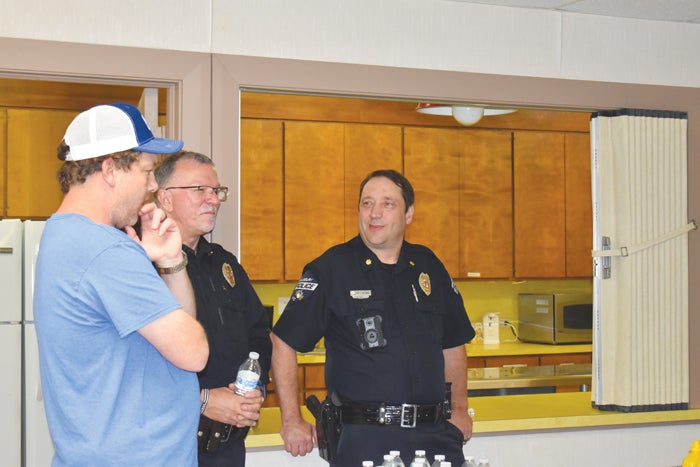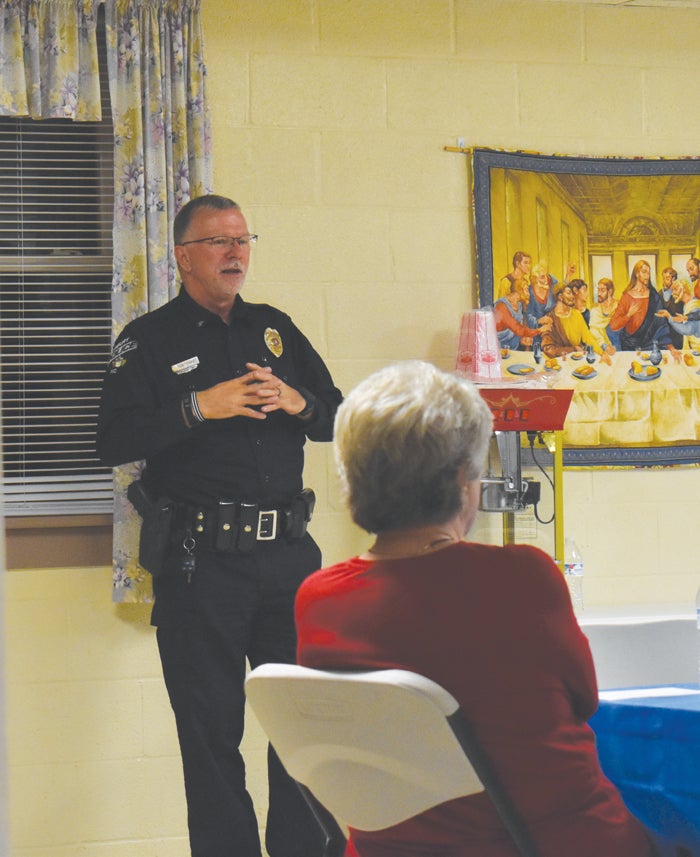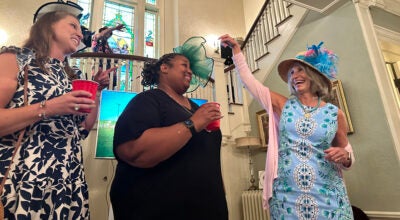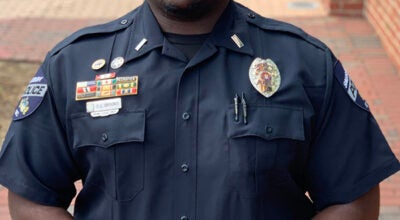Police continue to seek community input to improve, adapt services
Published 12:10 am Sunday, October 30, 2022
SALISBURY — Much of the interaction between police and members of the community is, if not negative, at the very lease stressful, so when the department held its fourth Cultivating Community Conversation event Thursday, the support and positive interactions were uplifting on both sides.
The goal of the events has always been to give residents a chance to talk to officers, from patrol up to and including Chief Jerry Stokes, letting them know the good and the bad.
At Thursday’s meeting, held at the Milford Hills Baptist Church on East Colonial Drive, more than 30 people attended to share thoughts and ask questions of Stokes and a number of officers. The events are funded by a $25,000 grant from Duke Energy, applied for by Stokes and the city’s Director of Diversity, Equity and Inclusion Anne Little. Both have been joined by Rev. Dr. Roy Dennis of Gethsemane Missionary Baptist Church in leading the meetings, which are aimed at learning both community concerns and what the department is getting right.
“I think we’ve gotten some truly beneficial information from these,” Stokes said. “We know we still have work to do in some areas, but we have made some positive strides. What we have heard a lot of is that people want to get to know their officer, the one that patrols their neighborhood, and that is something that takes time. But that is the kind of thing we want to hear.”
He pointed out that when an officer is going “from call to call during the day, it can take some time before he or she has time to get out of the car and walk the neighborhood, so getting to know a local beat officer takes some time. But I understand why people want to get to know individual officers, to make that connection.”
Stokes said he has also gotten positive feedback from Mayor Karen Alexander and City Manager Jim Greene. Both have attended each of the conversations.
“Engaging the community is a priority,” Greene said. “We certainly want to continue opportunities to communicate with neighborhoods, and not just with the police department, but others as well.” Greene said continuing these events is something he plans to discuss with the city council as a whole, because there is a cost element, but he believes it is worth continuing.
“It’s about togetherness, teams,” he added. “It’s us working together to resolve issues and implement ideas.”
“We need all hands on deck, together, to have a community that is for all of us,” added Dennis in inviting residents to speak up. “We need to break this code of silence.”
A number of those in attendance spoke up with questions about police actions, about resurrecting Salisbury Neighborhood Action Group (SNAG) meetings, about addressing bias, about how the department handles the stress officers are exposed to, about how officers deal with the homeless population and even about what exactly the job of a police officer entails.
“When I first came here, I thought we needed to move away from the SNAG meetings, and a number of you pointed out the error of my ways,” said Stokes. “So know that we are looking to restart that or a similar program.”
When it comes to bias, Stokes said the department has tried to meet it head on. Experts have been brought in to train officers, both in how to identify their own inherent bias and then how to avoid letting it interfere with their ability to do their job fairly.
“And we have a system in place for anyone who feels they may have been unfairly targeted,” he said. “I have an officer whose responsibility it is to investigate claims of bias, to determine whether or not the situation was handled properly, and if not, to address it, because biased policing is not something we tolerate.”
A resident asked about the assignment of a female officer “who is not dark-skinned” to address the issue of diversity “given that the problem of diversity seems to be a white person problem.”
Little pulled the conversation back, said “let’s not have a conversation about race, because if we do, we’re excluding numerous other groups,” she said. “We’re then leaving out LGBTQ+, the disabled, veterans, the elderly — many other groups. So we don’t need to have a conversation about black and white, but a broader conversation about how to make Salisbury the best place for all of us.”
When it comes to the homeless, Stokes said the question is complicated.
“Homelessness, substance abuse, mental health, they all end up being connected so many times,” he said. “And the answer is not to put someone in handcuffs and cart them off to jail or the hospital. But there are a lot of connected pieces that end up limiting our ability to help.” Rowan Helping Ministries, for instance, has a shelter, but it is what is known as a high bar shelter because it serves families and children.
“That means a sex offender, or someone who is intoxicated or who has a substance problem or even a mental health issue that is not under control can’t stay in the shelter,” he said. “Because the safety of the children is paramount.”
The city is currently lacking in the needed services for those populations, Stokes said, but he is aware the health department and others are working to change that, and he is supportive.
Another resident asked about parking on the wrong side of a residential street and why it can be hard to get officers to address it.
“It’s a matter of priorities,” said Stokes. “When we make our assignments for a shift, we are going to have officers assigned to pay attention to the areas where there is a high level of violent crimes — shootings, possibly breaking in to occupied homes, that sort of thing. We may not have officers to assign to cover street parking.”
Little also reminded those in attendance to call the non-emergency number to report that kind of information.
“You may assume that because you see it, officers see it, but that’s not always the case,” she said. “So don’t be afraid to call and say something. Now you may not see a police car in 10 minutes, or even in a day, but at least now it’s on their radar.”
Stokes said he is still focused on adding to the number of Hispanic and Spanish-speaking officers in the department, in the hope of better reflecting the makeup of the city.
“These are conversations we need to keep going,” Stokes said. “We need to continue to work to understand one another so we are working toward a common goal.”





